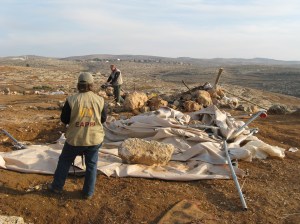A CALL TO ACTION!!!
"Youth Against Settlements" (http://www.youthagainstsettlements.org/) invites you to participate in the 3rd annual Global Day of Action to Open Shuhada (Apartheid) Street!
Contact Avital, one of the main organizers for the global day in the USA: aboodyavital@gmail.com
This year, Palestinian activists in Hebron are planning a week of activities to commemorate the Baruch Goldstein Massacre and demand the opening of Shuhada Street. The planned activities in Hebron include a photo exhibition about the Ibrahim Mosque Massacre and Non-violent Resistance in Palestine, a tour for Israeli Parliament Members (if Possible ), screening of a film about Shuhada Street, a presentation about the Apartheid system in Hebron, a main demonstrationm and visit to families of the massacre victims and families in H2.
As we have done for the past few years, we urge all people who are against Israeli Apartheid in Hebron to organize solidarity actions on February 25, 2012. Below is a list of suggested solidarity actions that we hope you will consider:
1. Demonstrations, Marches, Vigils, Flashmobs
2. Presentations about Apartheid in Hebron
3. Photo Exhibitions concerning Apartheid in Hebron
4. Twitter: Use this hashtag #OpenShuhadaSt to spread the word and educate the masses about Hebron. This is especially important during the week of actions.
5.Video Message: Create and send video messages to community forums, media, and social media outlets urging the international community to use diplomatic pressure to
re-open Shuhada Street.
6. Letter-writing and Petitions to the Israeli Ambassador and elected officials in your country asking them to intervene
7.Write letters to the Palestinian Families in Hebron to show solidarity
8.Close roads to show the public the effects of closing the main road in Hebron.
9.Visit Hebron to gain an understanding of the situation and the daily suffering of the people living there.
10. Any other non-violent activity you feel supports the cause; be as creative as possible!!
-- --
About the Hebron Weekly Demonstration: Open Shuhada Street
Shuhada Street is the main street connecting the southern and the northern parts of the City of Hebron. For the past 16 years, this street has been closed to Palestinian pedestrians and vehicles. Israel has also forced the closure of Palestinian shops and sealed shut the entrances to Palestinian homes along the street.
The city of Hebron is home to approximately 200,000 Palestinians. 600 Israeli settlers, supported by a large number of Israeli Military, now inhabit and control the heart of the Old City. The Israeli military severely restrict the movement of tens of thousands of Palestinian residents. However, the settlers have total freedom of movement, despite their presence being illegal under international law. They can both walk and drive vehicles through the Palestinian neighbourhoods. Shuhada Street is the most important thoroughfare in the area.
On Shuhada Street, all the shops and the majority of the houses are owned by Palestinians. The merchants of the street have incurred tremendous losses due to the street closure. In addition, Israel had welded shut all the Palestinian houses’ doors on the street, completely ignoring the rights of the Palestinian citizens living behind these doors. Residents have to jump over their back yards’ walls to get in and out of their houses. Those that cannot do this have had no choice but to abandon their homes as they have no way of accessing them.
The act of closing the street was taken arbitrarily without any legal justification from the Israeli occupation forces. The "safety of the settlers" was the only excuse given, despite the fact that the settlers’ presence in Hebron is illegal and based on the confiscation of Palestinian properties, and the fact that the settlers are outnumbered by the heavily armed soldiers who are there to stand guard over them. The closure of Shuhada Street is simply a part of the Israeli strategy to ethnically cleanse Hebron of its Palestinian population.
[Press: for more information please contact : Media.YAS@gmail.com]
Please reply to let us know how you plan to participate!
Thank you!
Open Shuhada Street Coalition
Youth Against Settlements is a national Palestinian non-partisan activist group which seeks to end Israeli colonization activities in Palestine (building and expanding settlements) through non-violent popular struggle and civil disobedience.
For more about Tammie's work in Hebron through EAPPI, see her blog: LivingStonesof Palestine.
--- --- ---
To receive regular bulletins from Ann Hafften, sign up at my blog - A Texas Lutheran's Voice for Peace: http://www.voicesforpeace.blogspot.com/
